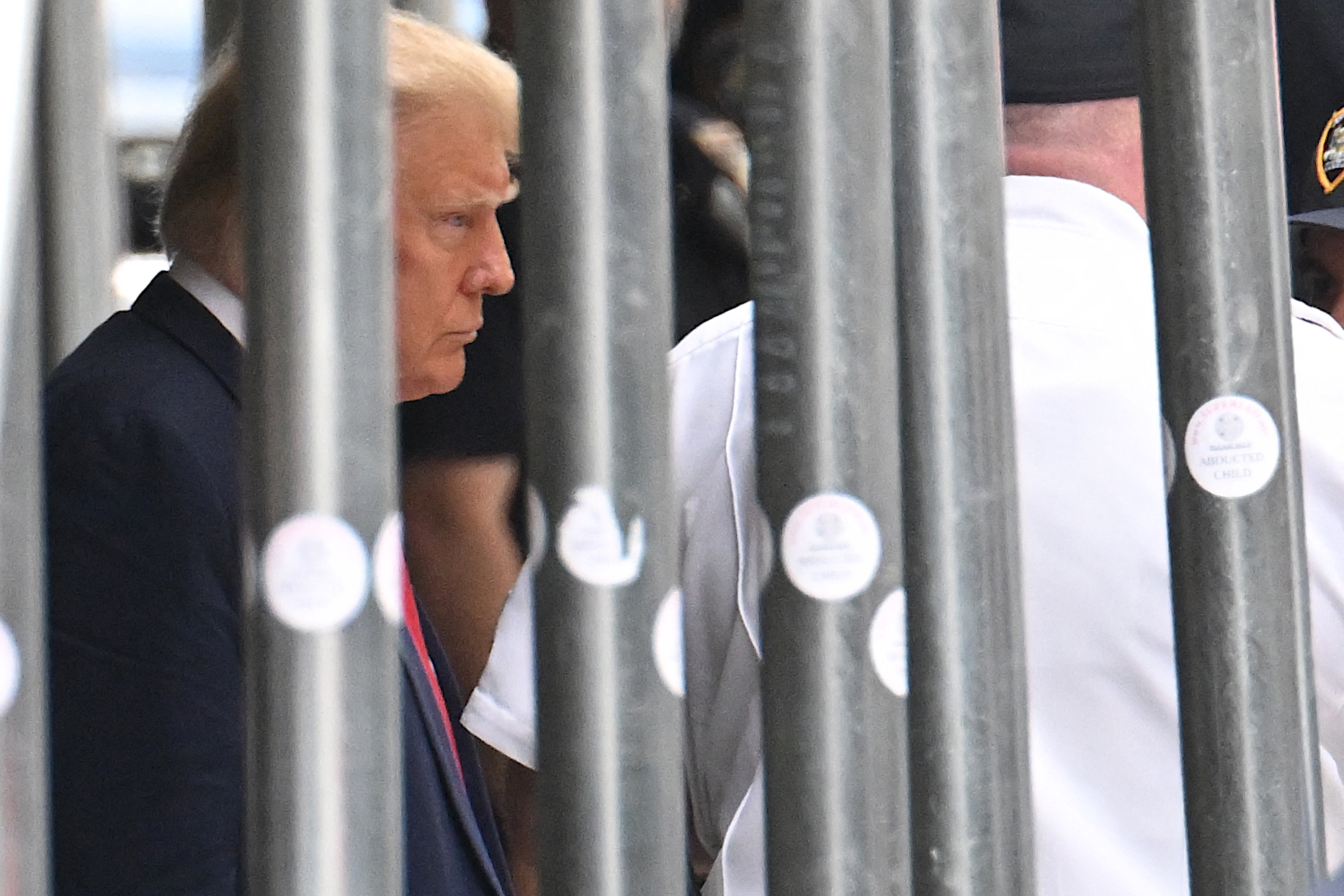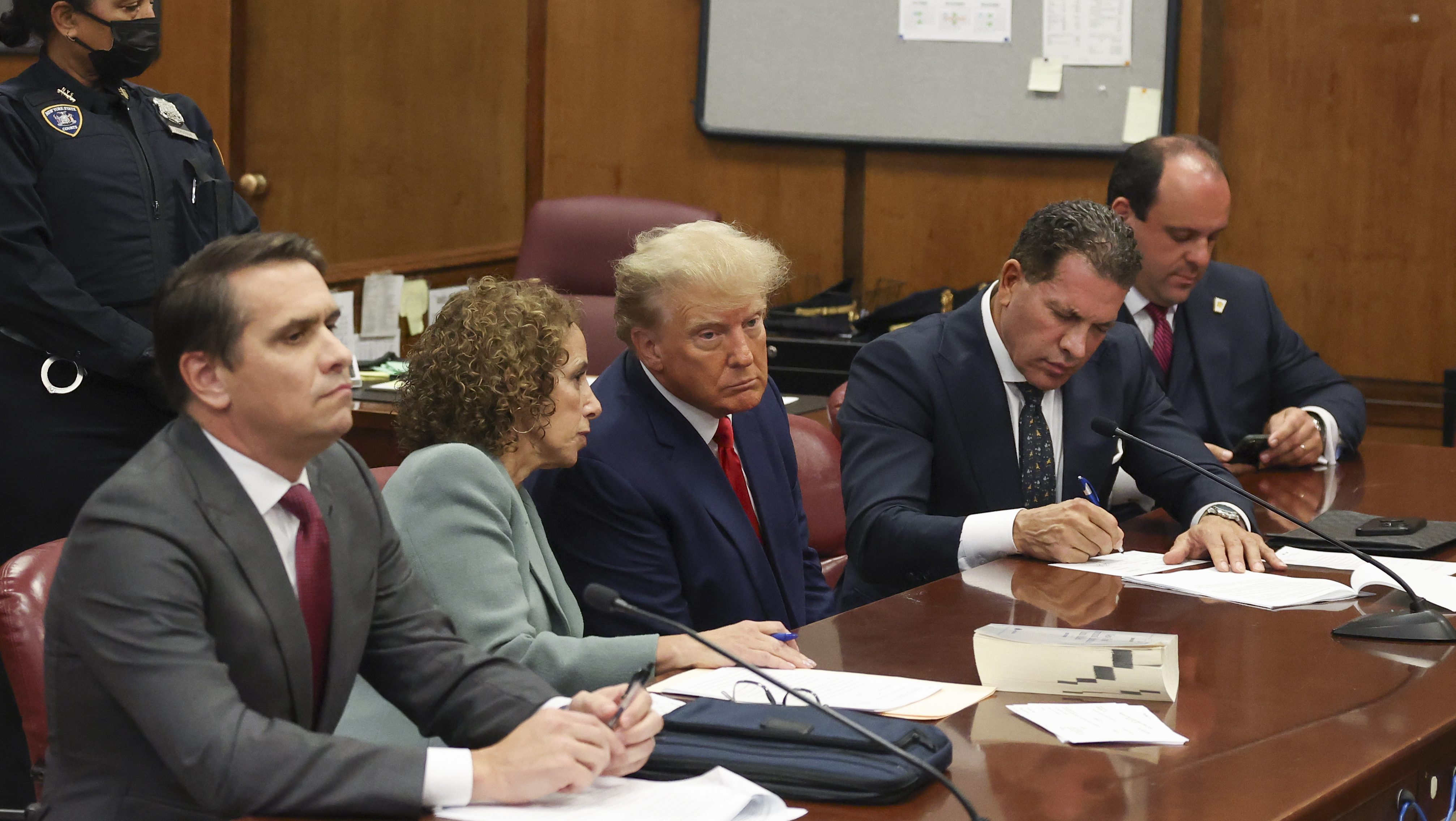Donald Trump became the first president, former or sitting, to be criminally charged as he was arraigned on a 34-count felony indictment that alleged he illegally influenced the 2016 election through a series of hush money payments.
Trump was charged with falsifying business records for his alleged role in hush money payments to porn star Stormy Daniels during his 2016 presidential campaign. The indictment, unsealed on Tuesday, detailed the alleged crimes in Trump's "catch and kill" scheme during a two-year period to keep potentially damning information from preventing the former president's path to the White House.
While Trump has vociferously denied any wrongdoing, the 76-year-old former president is expected back in court in December for his next hearing. Assuming nothing is settled before then, a trial could start in 2024.
Much has been made about the charges — as some question how good of a case Manhattan District Attorney Alvin Bragg has and how winnable it may or may not be — but what about a potential punishment for Trump if he were to be convicted?
The counts against him would normally be misdemeanors — lower-level charges that would not normally result in prison time. But they were bumped up to felonies because, Bragg says, they were done in an effort to commit or conceal other crimes.
Get Tri-state area news delivered to your inbox. Sign up for NBC New York's News Headlines newsletter.
So given that they are indeed being treated as felonies, would he potentially face prison time if convicted? And if so, how much?
The answer to both is: It's unclear, as of now.
The counts of falsifying business records do carry up to four years behind bars, according to New York state law. But it's not that simple.
That's because it’s not clear if Judge Juan Merchan would impose any prison time if Trump is convicted. And perhaps more importantly, prosecutors haven't said if they planned to seek prison time in the event of a conviction.
What is clear, however, is that a conviction would not prevent Trump from running for or winning the presidency in 2024.
Though prosecutors expressed confidence in the case, a conviction is no sure thing given the legal complexities of the allegations, the application of state election laws to a federal election and prosecutors’ likely reliance on a key witness, Trump’s former lawyer and fixer Michael Cohen, who pleaded guilty in 2018 to false statements.
The case also centers on payoffs to two women, Daniels and Playboy model Karen McDougal, who said they had extramarital sexual encounters with Trump years earlier, as well as to a Trump Tower doorman who claimed to have a story about a child he alleged the former president had out of wedlock.
“It’s not just about one payment. It is 34 false statements and business records that were concealing criminal conduct,” Bragg told reporters, when asked how the three separate cases were connected.
All 34 counts against Trump are linked to a series of checks that were written to Cohen to reimburse him for his role in paying off Daniels. Those payments, made over 12 months, were recorded in various internal company documents as being for a legal retainer that prosecutors say didn’t exist. Cohen testified before the grand jury and is expected to be a star prosecution witness.
Nine of those monthly checks were paid out of Trump’s personal accounts, but records related to them were maintained in the Trump Organization’s data system.
The New York case is just one of many legal worries for Trump. Georgia prosecutors are also investigating Trump’s attempts by Trump and his allies to overturn his 2020 election loss in in the state. And federal prosecutors are investigating whether classified documents were criminally mishandled at Trump’s Florida home, as well as efforts by Trump and his allies to undo the results of the presidential election.
AP writers Alanna Durkin Richer, Colleen Long and Jennifer Peltz contributed to this report.




